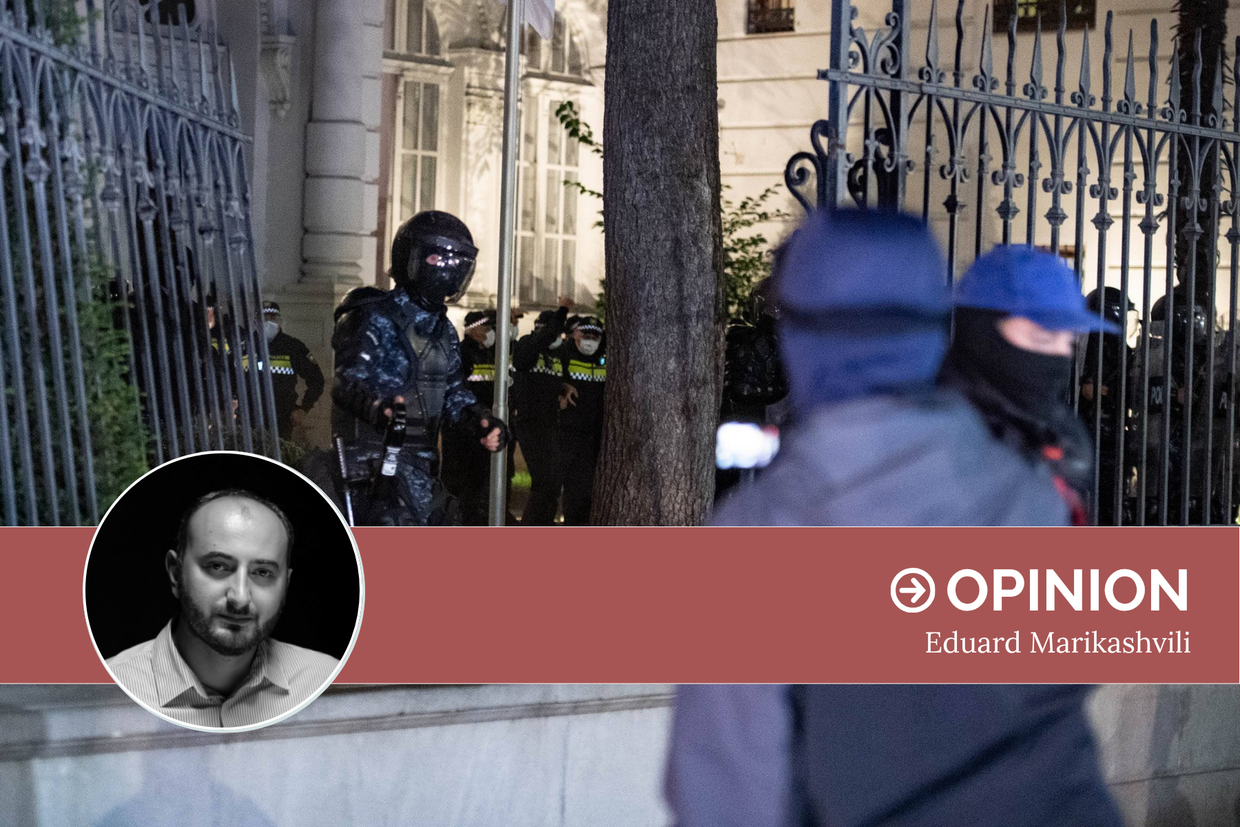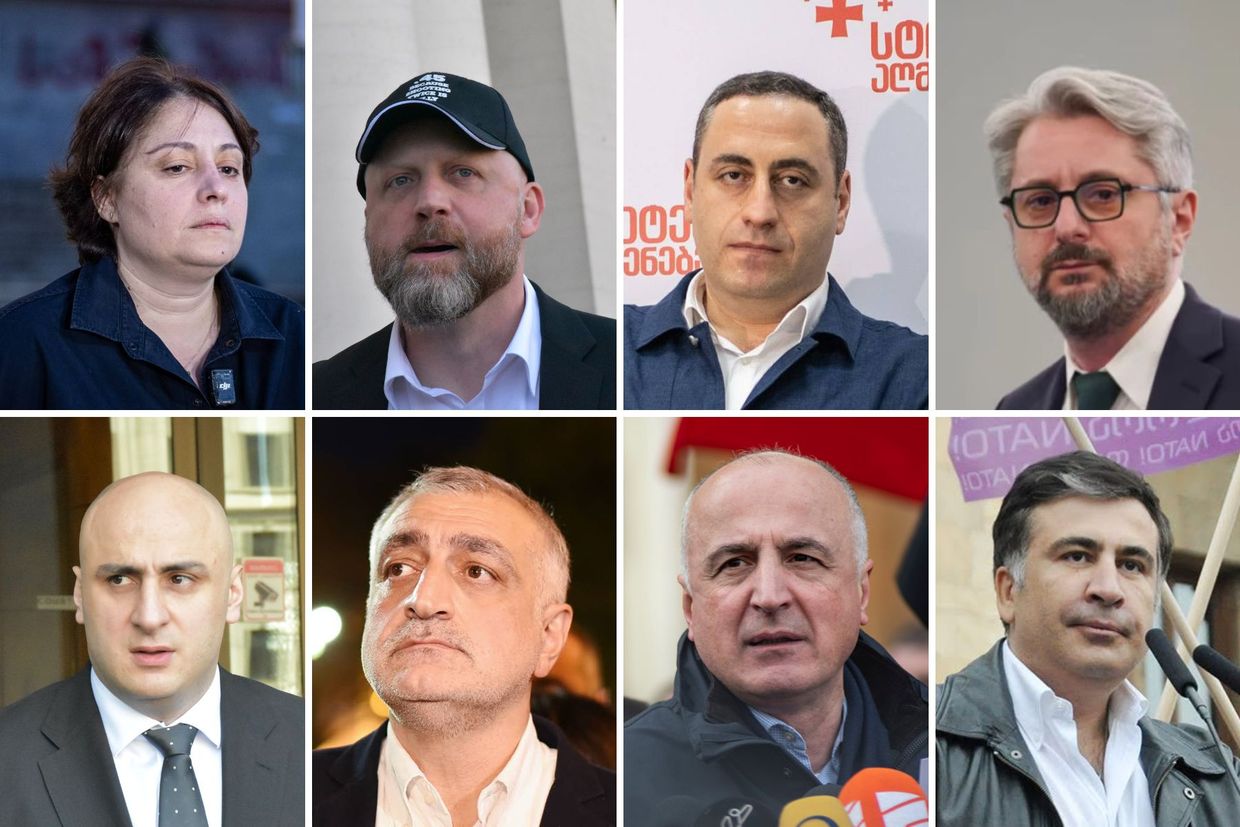Opinion | How Georgian Dream is criminalising human rights
The regime’s goal is to place those who dare to expose the regime’s cases of human rights violations in a constant state of uncertainty.

Repressions in Georgia are becoming increasingly severe, resembling a kind of unstoppable process, a spiral where stopping the regime becomes impossible, and each new wave of repression demands even more and harsher subsequent waves of repression. Otherwise, governing the country becomes impossible for the regime.
Fear and control are the fundamental principles of the regime's governance today. To control society, the regime needs as many fear factors as possible. Today, it is creating fear factors through draconian legislation, its strict enforcement, and by declaring freedoms crimes.
This is the essence of repressive legislation. The law must have as much contact as possible with freedom, so that wherever a person goes, they encounter prohibitions and strict liability. Ultimately, they find themselves locked between four virtual walls of prohibitions and liabilities.
This creates a very strange feeling — with your whole being you want to fight for your homeland and freedom, as if nothing stands in your way, yet the invisible wall of repressions, prohibitions, and strict liability crushes your will to step off the sidewalk, because one step beyond awaits prison and imprisonment.
However, there are still people in Georgia who try to break down the invisible walls of repression and step over them, despite unconditional imprisonment and possible criminal liability. Such people are heroes, because they cannot do otherwise; being at ease with one’s conscience is a more elevated feeling than the fear of imprisonment and punishment.
After the events of 4 October, the regime’s main target became the continuous protest on Rustaveli Avenue that has been ongoing for nearly a year.

Notably, the parliament adopted legislative changes in an expedited manner and substantially toughened sanctions for a whole series of actions related to peaceful protests and demonstrations. Among these was making the ‘artificial’ blocking of streets during protests and covering one’s face by any means punishable by mandatory imprisonment of up to 15 days. For repeat offences, it established criminal liability and one-year imprisonment, up to two years in case of recidivism, and for alleged organisers, up to four years imprisonment.
Similar changes were criticised by the Venice Commission back when some of these actions became subject to fines as a form of liability. The Venice Commission, even then, called the changes problematic, and considered their purpose and necessity unjustified.
Shortly after the adoption of the changes, the regime began its enforcement. Within a few days, more than a hundred people were sent to prison. As a result, protesting was effectively declared a crime, because anyone who steps onto the roadway is subject to repression, even when the number of protesters necessitates blocking the road, even when standing on the sidewalk wearing a medical mask, or completely without reason, only because the regime doesn’t like their activism.
Thus was the freedom of assembly and demonstration declared a crime in Georgia.

However, billionaire and Georgian Dream founder Bidzina Ivanishvili’s regime does not intend to be satisfied with this.
On 6 November, Georgia’s Prosecutor General announced the bringing of new charges against eight opposition leaders. They have been charged with sabotage, assisting a foreign country in hostile activities, and other crimes against the state. For some of them, the sentence provides for imprisonment of up to 15 years. Moreover, according to amendments to the Criminal Code entered in April 2025, sabotage is simultaneously qualified under the Criminal Code as treason.
Some opposition leaders were charged because they shared information about the gross violations of human rights in Georgia and those responsible for them with democratic countries and institutions. They also shared information about Georgia’s possible use in circumventing sanctions for Russia’s benefit. The Prosecutor General considers the damage inflicted on the state by politicians’ actions to be the sanctioning by Western democracies of more than 300 people, including Ivanishvili, against Georgia’s interests.

Human rights, as a universal good, require an obligation to protect them. Accordingly, when human rights are violated, discussion and punishment of those responsible is not only necessary but obligatory.
However, the Georgian Dream regime has declared the protection of human rights and the protection of the country’s interests as crimes of sabotage, assisting a foreign country in hostile activities, and treason.
The regime’s goal — and to some extent its result — is instilling fear in society — to place those who dare to expose the regime’s cases of human rights violations in a constant state of uncertainty,
This is the reality in Georgia today. On one side is the regime, which continues to become increasingly and ever greater evil, and on the other side are the people, who try not to submit to this evil and seek various ways to confront it.




![Baia Margishvili standing in central Tbilisi with a sign reading: ‘The Prosecutor’s Office [is] a punitive squad. How many more innocent people will you put in prison?’ Photo: Mariam Nikuradze/OC Media.](/_next/image/?url=https%3A%2F%2Fassets.bucket.fourthestate.app%2Foc-media-prod%2Fcontent%2Fimages%2F2026%2F02%2Fcalls-for-sanctions-and-raids-19-10-25-48.jpg&w=3840&q=50)




